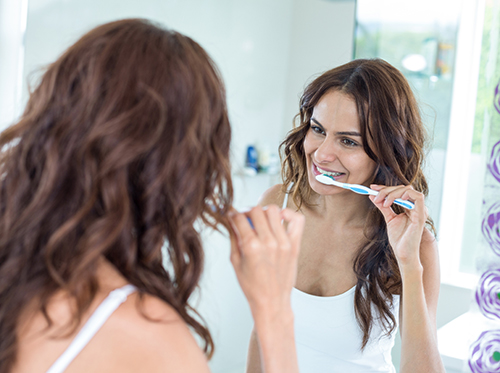
A lot of patients go at their teeth like they were sanding an old floor—that is to say, way too hard! Brushing too hard is probably the most common mistake patients make in their oral care routine, and it can be detrimental to the gums and teeth.
What can brushing too hard cause?
- Receding gums
- Bone loss around teeth
- Loss of teeth
- Tooth sensitivity, especially to hot and cold
- Worn down enamel
Brushing too hard wears away at your gums, which can lead to the neck of the teeth being exposed. This part of the tooth isn't covered by hard enamel like the rest of the tooth and hence the soft inner layer, or dentin, is exposed. Dentin is very sensitive to hot and cold and much more susceptible to bacterial decay. Once the gums recede due to improper brushing, it’s usually irreversible.
How to brush your teeth properly
You know you're supposed to brush your teeth twice a day, so why not do it right? First and foremost, you should only ever brush with a soft bristled brush—not medium or hard—unless directed otherwise by Dr. Dawn Mikaitis. Unless you have braces or specific oral health issues, brushing twice a day for two minutes is usually plenty.
The main purpose of brushing is to remove plaque from your teeth and gums. Plaque is actually soft and is a buildup of bacteria, saliva, and food debris. You really don't need to brush hard to remove it, just make sure you aim your toothbrush at the gum line (where plaque grows) and brush in small circular motions, never a back-and-forth motion.
It's also wise to hold your toothbrush gently. People tend to brush harder the tighter they hold their toothbrush.
Still have questions about proper tooth brushing technique or gum health? Ask any staff member or Dr. Dawn Mikaitis during your next visit to our Naugatuck office; we'd be happy to help!


